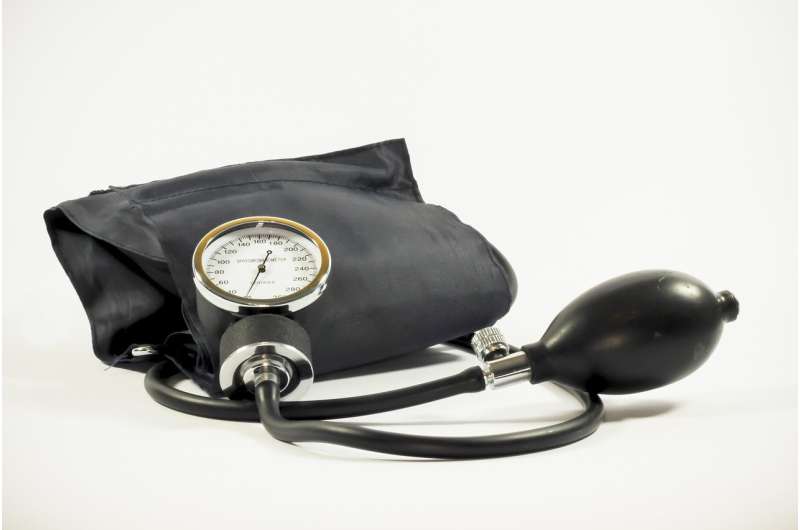
Women with mildly elevated blood pressure in their early 40s have a two-fold risk of acute coronary syndromes in their 50s compared to their counterparts with normal blood pressure. That’s the finding of a study published in the European Journal of Preventive Cardiology, a journal of the European Society of Cardiology (ESC).
“Even if they feel healthy, women should have their blood pressure measured by their primary care physician and repeated at regular intervals with the frequency dependent on the level,” said study author Dr. Ester Kringeland of the University of Bergen, Norway. “Those with other risk factors for heart disease, such as obesity, diabetes, autoimmune disorders, pregnancy complications, or parents with high blood pressure need more intense monitoring.”
Previous studies have suggested that high blood pressure is a stronger risk factor for heart disease in women than in men. In addition, young and middle-aged women have on average lower blood pressure than men, but despite this, the threshold for diagnosing high blood pressure is the same in both sexes. This study investigated whether mildly elevated blood pressure (130-139/80-89 mmHg) was a stronger risk factor for acute coronary syndromes in women than in men.
Blood pressure was measured in 6,381 women and 5,948 men participating in the community-based Hordaland Health Study at age 41 years. Heart attacks were recorded during 16 years of follow up.
The researchers found that in women, mildly elevated blood pressure was associated with a doubled risk of acute coronary syndromes during midlife. This association was not found in men after adjusting for other cardiovascular disease risk factors.
Dr. Kringeland said, “Our analyses confirmed that mildly elevated blood pressure affects the risk of acute coronary syndromes in a sex-specific manner. The results add to emerging evidence indicating that high blood pressure has particularly unfavorable effects on women’s hearts.”
Dr. Kringeland noted that the findings probably reflect differences between women and men in how the small arteries respond to elevated blood pressure, but this needs to be further explored. She said, “Young women have, on average, lower blood pressure than men, but a steeper increase is observed in women starting in the third decade. Since the threshold for high blood pressure is the same in both sexes, young women have, in fact, had a relatively larger increase than men before being diagnosed with high blood pressure. Women should know their blood pressure. To retain a normal blood pressure, it is recommended to maintain normal body weight, keep a healthy diet and exercise regularly. Furthermore, it is advisable to avoid smoking and excess consumption of alcohol and salt.”
Source: Read Full Article
